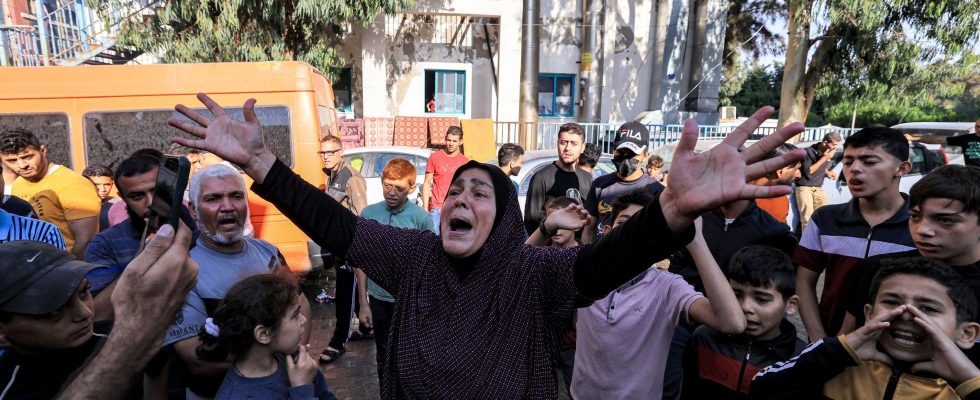On Tuesday October 17, 2023, a military projectile hit Al-Ahli Arabi hospital and caused numerous deaths, including children. The building is located in the Gaza Strip, and many Palestinians had taken refuge there, believing they would be safe after Israel ordered residents to move to the south of the area. The emotion was very strong and immediate on social networks, where horrible images of bodies crushed by the explosion circulated. Emotion was also expressed by representatives of international institutions and many countries. But what to say and who to blame? Indeed, Hamas denounced a “horrible massacre” the cause of which was an IDF strike, while the Israeli government attributed responsibility to a shot from the Islamic Jihad group which, for its part, cried lies.
Even if, as the days pass, elements of evidence arise which tend to support one version rather than the other, the fact remains that at the time when the uncertainty was complete many commentators had nevertheless Already their opinions. This is the case, unsurprisingly, for several countries in the Middle East. Saudi Arabia has suspended all discussions regarding the normalization of its relations with Israel, arguing that this was a heinous crime committed by the occupying forces. This is also obviously the case for Iran, which saw in this tragedy the infamous mark of “American-Israeli bombs”. On social networks, the reactions were the replica of these interpretations: depending on whether one felt pro-Israeli or pro-Palestinian, one adopted, when in doubt, a circumstantial truth which did not leave the shadow of a doubt . In this cacophony, Olivier Faure was heard declaring on social networks: “Nothing justifies the raid against this hospital in Gaza. The barbarity of Hamas does not authorize the war crimes of the IDF.” While Hadrien Clouet, the LFI’s “deputy sociologist”, asserted in a more intimidating manner: “The Israeli army is now bombing hospitals. Any ‘unconditional support’ constitutes approval.”
We can try to explain these phenomena by bad faith – and it is certainly not absent from the situation – or even the desire to believe what we consider preferable, but this does not shed much light on the situation. The truth is that beyond this particular tragedy we generally see better the reasons for lying of others than the possible alterations of our own judgment. It is because the deceptions of adversaries have outraged us, when we easily forget our little arrangements with reality. And, as the dissimulations of enemies are more available to our memory than those of our friends, we are sincere when, in doubt, we preventively believe our adversaries guilty of lies. In this way, we make ourselves inaccessible to suspension of judgment even in uncertainty.
In the current situation, this interpretive divide is particularly worrying, because it could be one of the steps towards the internationalization of the conflict. Despite the specifics of this drama, it turns out that its structure resembles situations that now arise incessantly. This is how, news story after news story, the present is condemned to lie to us. Uncertain circumstances give rise to interpretations based on certainty. That the future can be misleading is quite normal since it easily inspires competing speculations, but at least we could count, until recently, on the present to prove some people right and others wrong. Today, we are witnessing an inversion of the maxim of Saint Thomas, who claimed to only believe what he saw. We have arrived at a situation where we only see what we believe.
Once our memory has “engrammed” a myth in our mind, it will flourish there and never want to leave. And now the past will start to lie to us too. Individuals living in the same society will not only not share the same future, but also neither the same present nor the same past. Counterfeits will become so numerous that our minds will be reluctant to untangle the web of versions. He will be able to satisfy himself with his own through a sort of resigned fatigue. The truth has never been so costly as since so many voices claimed to defend it.
* Gérald Bronner is a sociologist and professor at Sorbonne University
